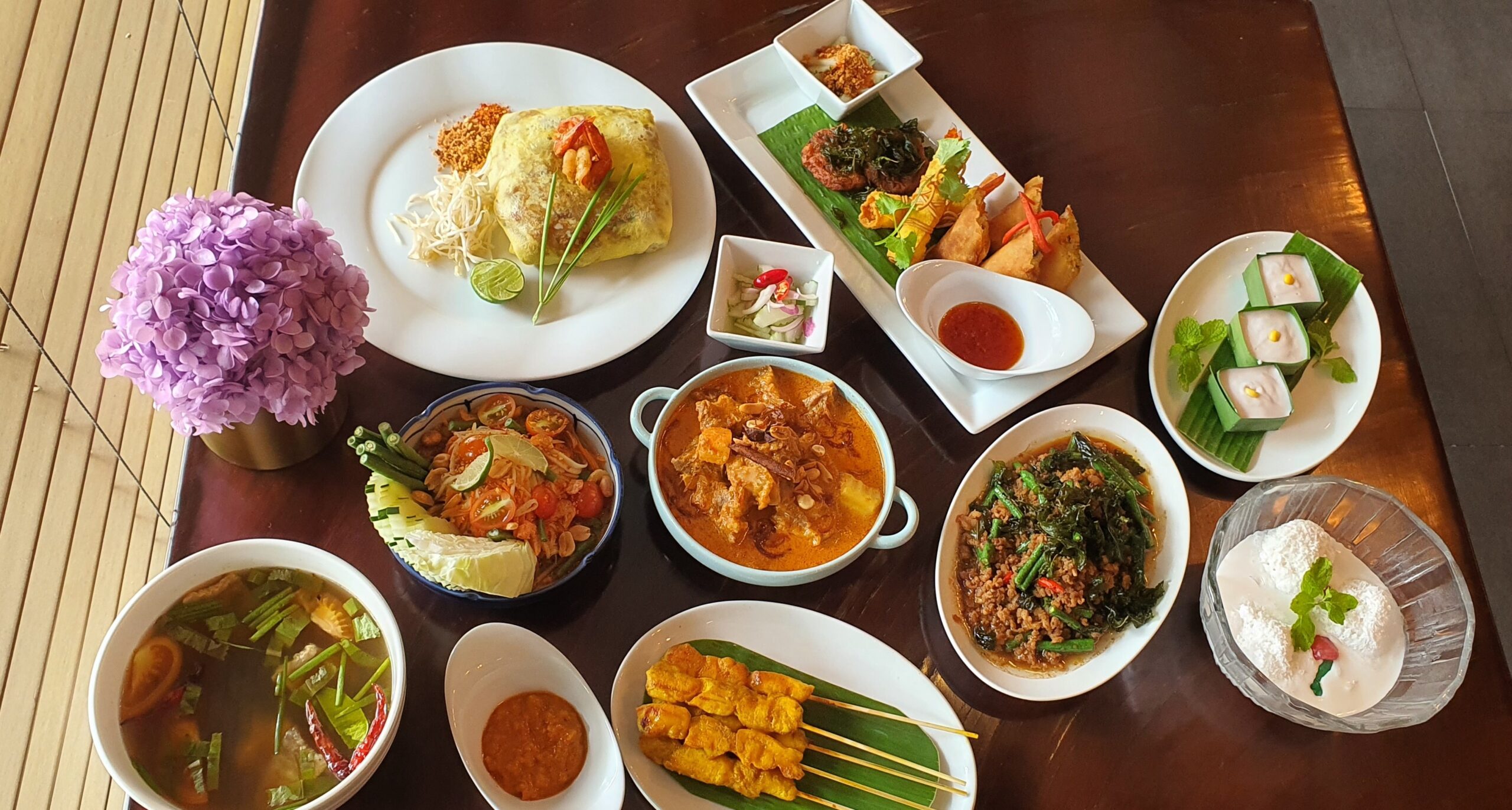Reflections on Thai flavors and spices at the three-time “Thai Select” Seal of Approval awardee.
A few weeks ago, The POST had the distinct honor of enjoying lunch with Thailand Ambassador to the Philippines Tull Traisorat, along with guests and media friends at the handover ceremony of Azuthai’s “Thai Select” Seal of Approval from the Thai Ministry of Commerce.
The initiative is part of the “Thai SELECT” program, launched by Thailand’s Department of International Trade Promotion, Ministry of Commerce, and the Royal Thai Government to promote Thai cuisine globally and certify restaurants that serve authentic Thai food outside of the Land of Smiles.
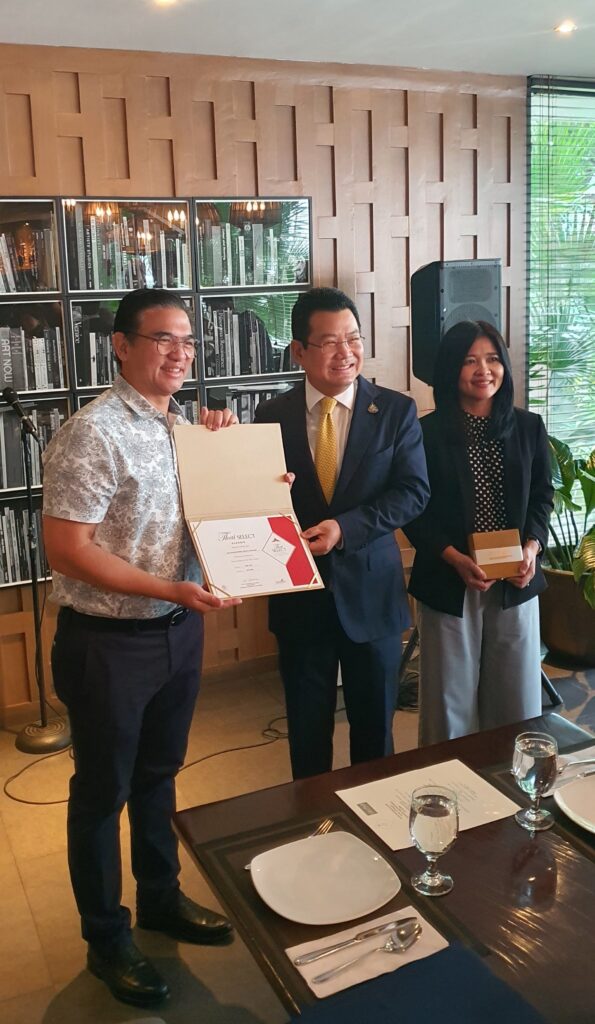
Established in 2008, the Makati-based restaurant, which is part of the iconic Milky Way group of restaurants along Arnaiz Avenue, holds the honor of being the first Philippine recipient of the “Thai Select” Seal of Approval. Azuthai first received the accolade in 2016, and it has upheld the distinction since then.
A hot awakening
Morning rain pelted Makati while we were waiting for lunch to be served. The chilly weather made me more excited to warm up my body with spicy Thai food. This eagerness came as a surprise to me, as I have only recently begun building my spice tolerance and appreciation (a polite way of saying that I used to dislike spicy food).
Azuthai’s menu for the festivities eased us quite nicely into the flavors and spices. The appetizers and salads combined the crisp freshness of green papaya and tomato with a hint of heat. The tom klong, a hot soup with fried fish and tamarind, satisfied my need for heat with a dash of sourness.
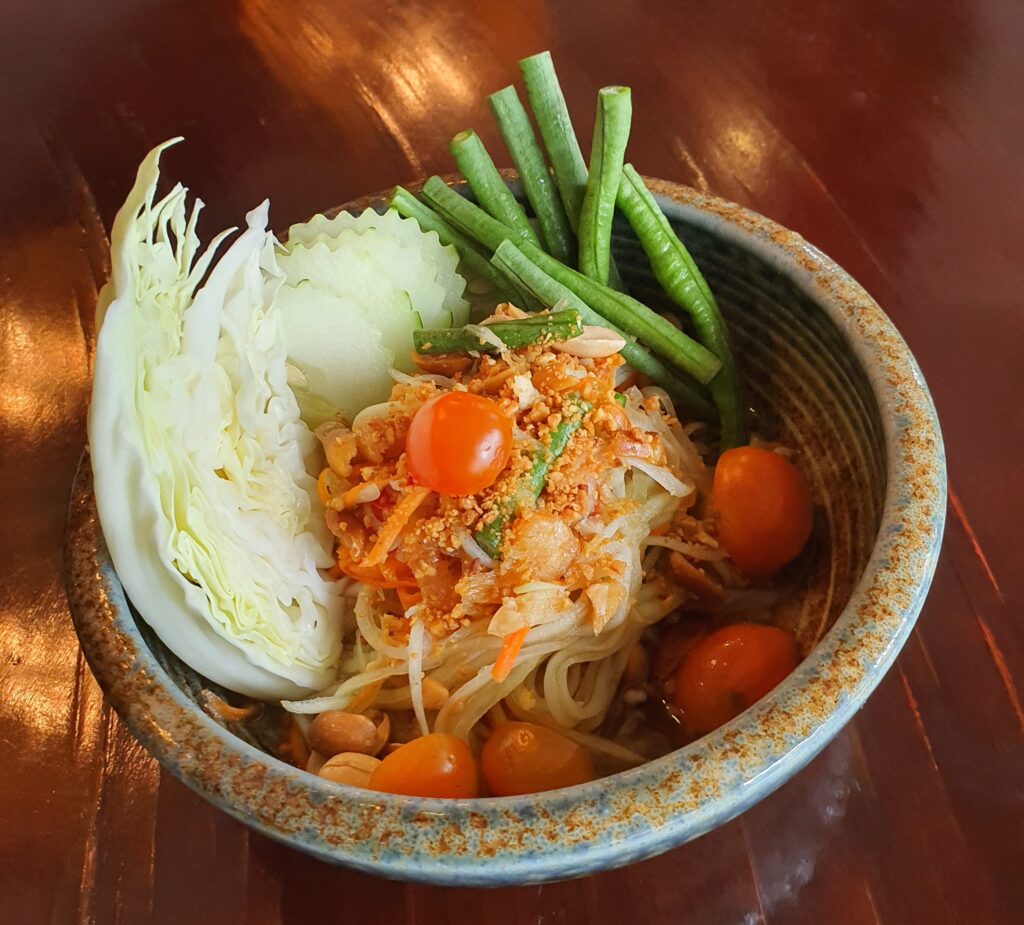
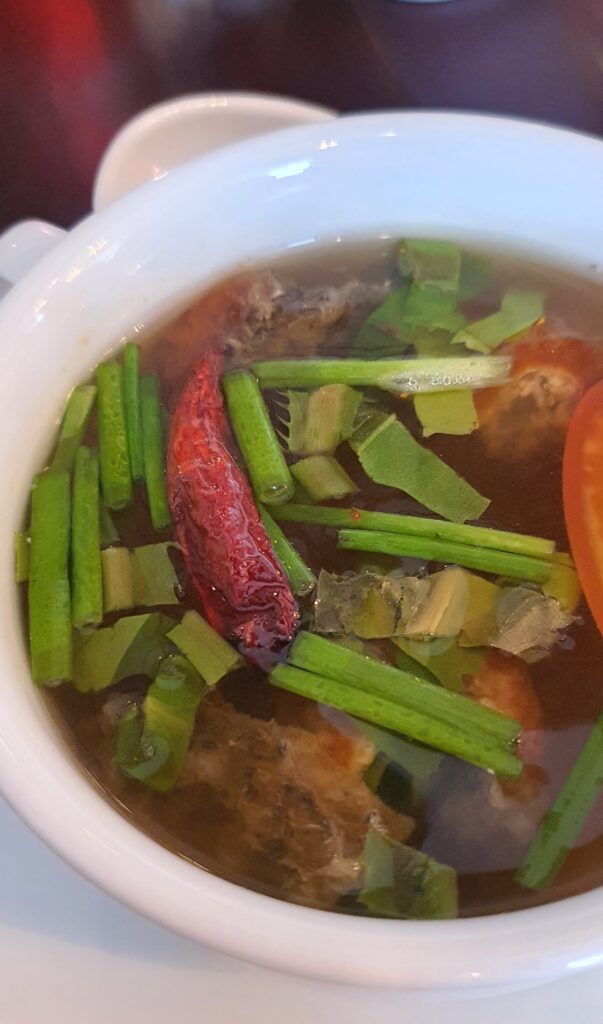
While the main dishes were being served, Thai Embassy Minister Counsellor Janthana Chotimunee, who was seated in front of me, was kind enough to warn us that the moo kra prow (stir-fried pork with chili and basil) and massaman gaeh (lamb curry with shallots, potatoes, and peanuts) were going to be spicier than usual. I smiled, took a swig of my lemongrass tea, and wondered, “Just how spicy is a dish that a Thai native would consider it ‘extra’ spicy?”
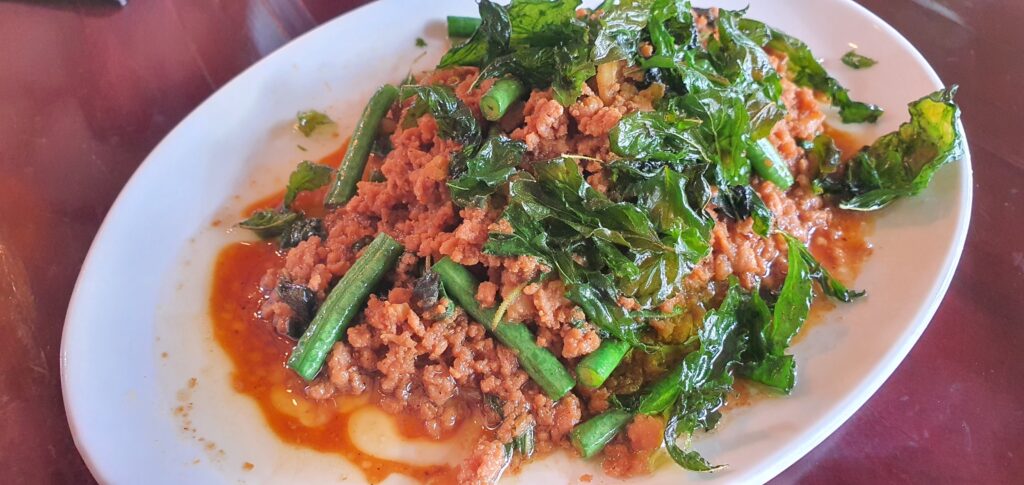
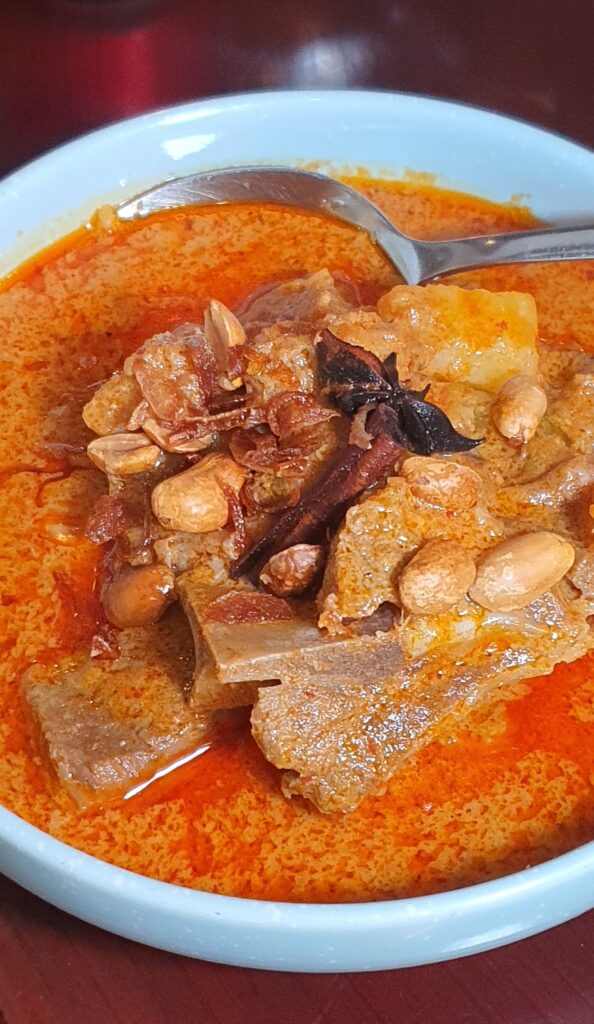
After a few bites, I got my answer, followed by downing several glasses of ice-cold water. To be fair, the heat that I felt from the moo kra prow and massaman gaeh was the kind of sensation that prompted me to eat more rice with it. The savory and spicy elements needed that mild and somewhat earthy vehicle to balance the flavors, finished with some herbiness from the basil and shallots.
I knew, however, that water wasn’t the best way to cool down the spice. That’s where the tap tim krob (water chestnuts with fresh coconut milk) came in. I didn’t mind anymore that it was cold in the restaurant and that the treat was served with ice—for all my appreciation for the savory flavors I had to tone the heat down a notch somehow.
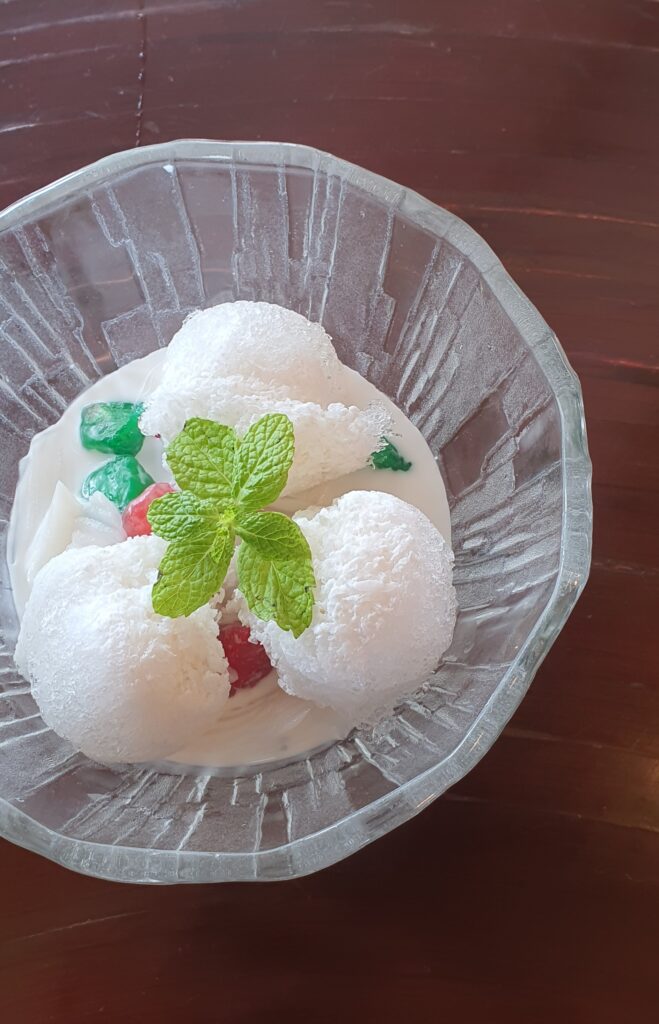
The ties that bind
In his speech for the handover ceremony, Ambassador Traisorat emphasized the role of establishments like Azuthai in strengthening the ties between the Philippines and Thailand. While historical sources present evidence of maritime trade between the two countries centuries ago, it was only in 1949 that the two Asian nations formally signed a Treaty of Friendship.
As such, the ambassador underscored that 2024 will be a landmark year for the two nations, which will celebrate 75 years of strong diplomatic relations. And while other aspects of their culture have been celebrated in the Philippines—muay thai, Thai cinema and media, among others—it has been and will be through food that the two countries can further deepen their bond.
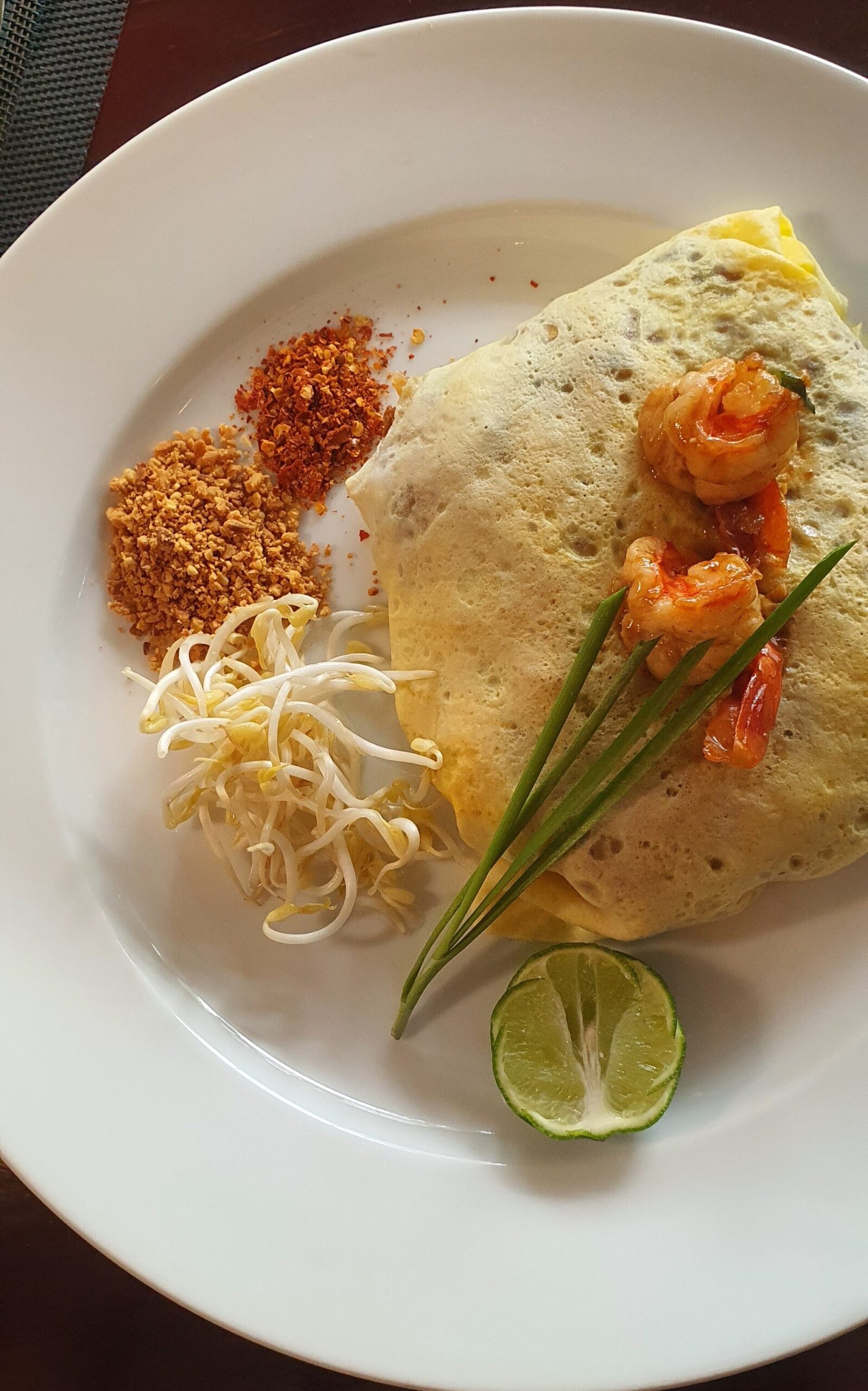
“About forty years ago, several Thai students went to the Philippines to study at the University of the Philippines Los Baños,” the ambassador shared. Some of these exchange students (mostly agriculture majors) found love in the country and settled here, and the ambassador even cited a Filipino-Thai couple that once opened a Thai restaurant near the university.
Meanwhile, those who returned to Thailand came back with more than just an education—some went back with love, and others carried their Filipino cuisine know-how to open restaurants and bakeries serving Filipino fare.
Anecdotes like these convince the ambassador that if more establishments in the country followed Azuthai’s lead and got the “Thai Select” Seal of Approval, the two nations can enjoy a stronger relationship that can transcend the geopolitics.
As for myself, that will mean more Thai restaurants to strengthen my spice tolerance and enjoy a refreshing cup of tap tim krob after.
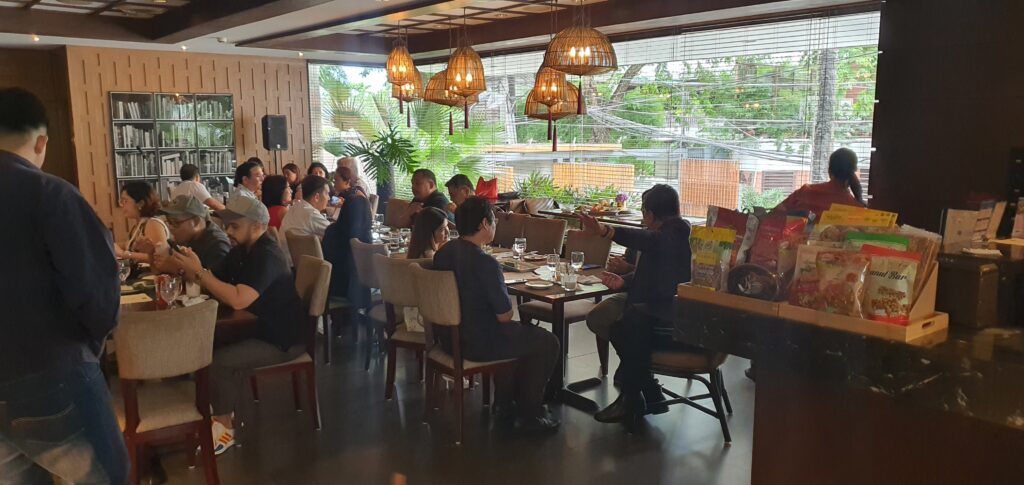


For reservations and inquiries, visit Azuthai’s official website, Facebook page, or Instagram account.

